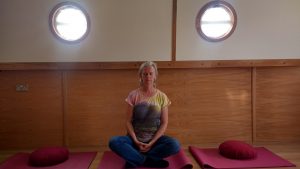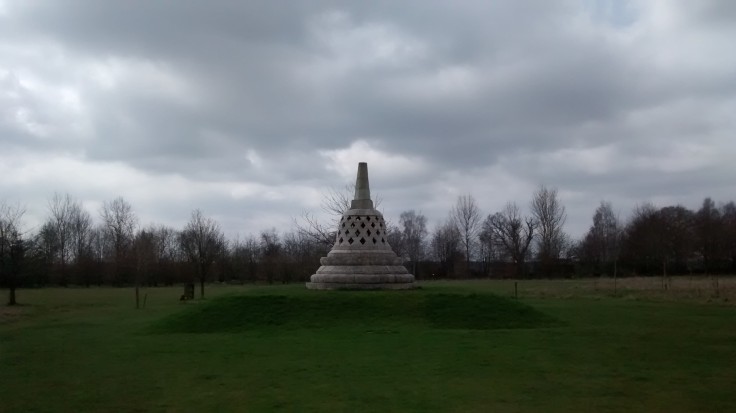I’m lucky enough to live within cycling distance of the Realm of the Deathless!
Well actually it’s a Theravadin Monastery in Great Gaddesden, just outside Hemel Hempstead, called Amaravati which, in Pali I believe, means The Realm of The Deathless. I’ve biked up the hill today, Easter Sunday, and I’m writing this is the delightful little library.
Death rather that deathlessness has been on my mind over the last few weeks and days. My own elder brother died a few weeks ago and over this weekend the father of a dear friend died suddenly. There is nothing like a few shufflings off the mortal coil along with the presence of some more grey hairs and aches and pains to bring to mind the transient nature of our own little lives, as the bard would call it.
Yet what’s to be done and thought about it? Up on the Regents canal in London there is a huge chalk board. The passers by are invited to suggest things they want to do before they die. The list is long and varied with everything from climbing Mt Everest to swimming with dolphins. As we went past in a boat my friend Andy summed up his reaction. The “commodotisation of experience” he declared. He has a point. Its as though experiences have some marketable value.. that one is more worthwhile than another. They are to be bought, sold and accumulated or our lives cannot have been worthwhile.
I’m not saying that I would not prefer some experiences to others. A full stomach courtesy of a good restaurant over hunger for example. Its rather that this discounts most of our time spent in rather mundane or frustrating experience. It seems to implythat if you are not bungee jumping you are not living.
Mindfulness is about valuing ALL of your experience, moment by moment. The deliriously blissful as well as the painfully boring. Well it’s an aim – opening up to those things we would rather push away and noticing those things so obvious they barely get a look in to our consciousness.
Curiously bungee jumping does not figure largely in our top regrets when we die. They tend to be regrets like: not having lived life authentically, not having expressed our feelings enough and wishing we had let ourselves be happier. My brother would I think agree with this and told me how much family and friends were the real joy was to be found. He made the most of this in his last months.
So what I/do we do? and what is the Deathless Realm?
“Live every moment as if it were your last” some say. What a crazy and impossible notion I say. Do your best to remember to be in every moment is more realisable plus we have some practices to actually help us with that. However feeble any extra connection to the moment is a bonus. Oh! and don’t try to pick and choose experiences, we all get a mixed bag whether we like it or not.
The Deathless Realm.. well that’ll be where none of this matters very much.
In case you have not read it here is Clive James’s poem written in anticipation of death – he has terminal cancer. He captures one fleeting moment beautifully.
Japanese Maple
Your death, near now, is of an easy sort.
So slow a fading out brings no real pain.
Breath growing short
Is just uncomfortable.
You feel the drain
Of energy, but thought and sight remain:
Enhanced, in fact. When did you ever see
So much sweet beauty as when fine rain falls
On that small tree
And saturates your brick back garden walls,
So many Amber Rooms and mirror halls?
Ever more lavish as the dusk descends
This glistening illuminates the air.
It never ends.
Whenever the rain comes it will be there,
Beyond my time, but now I take my share.
My daughter’s choice, the maple tree is new.
Come autumn and its leaves will turn to flame.
What I must do
Is live to see that. That will end the game
For me, though life continues all the same:
Filling the double doors to bathe my eyes,
A final flood of colours will live on
As my mind dies,
Burned by my vision of a world that shone
So brightly at the last, and then was gone.




